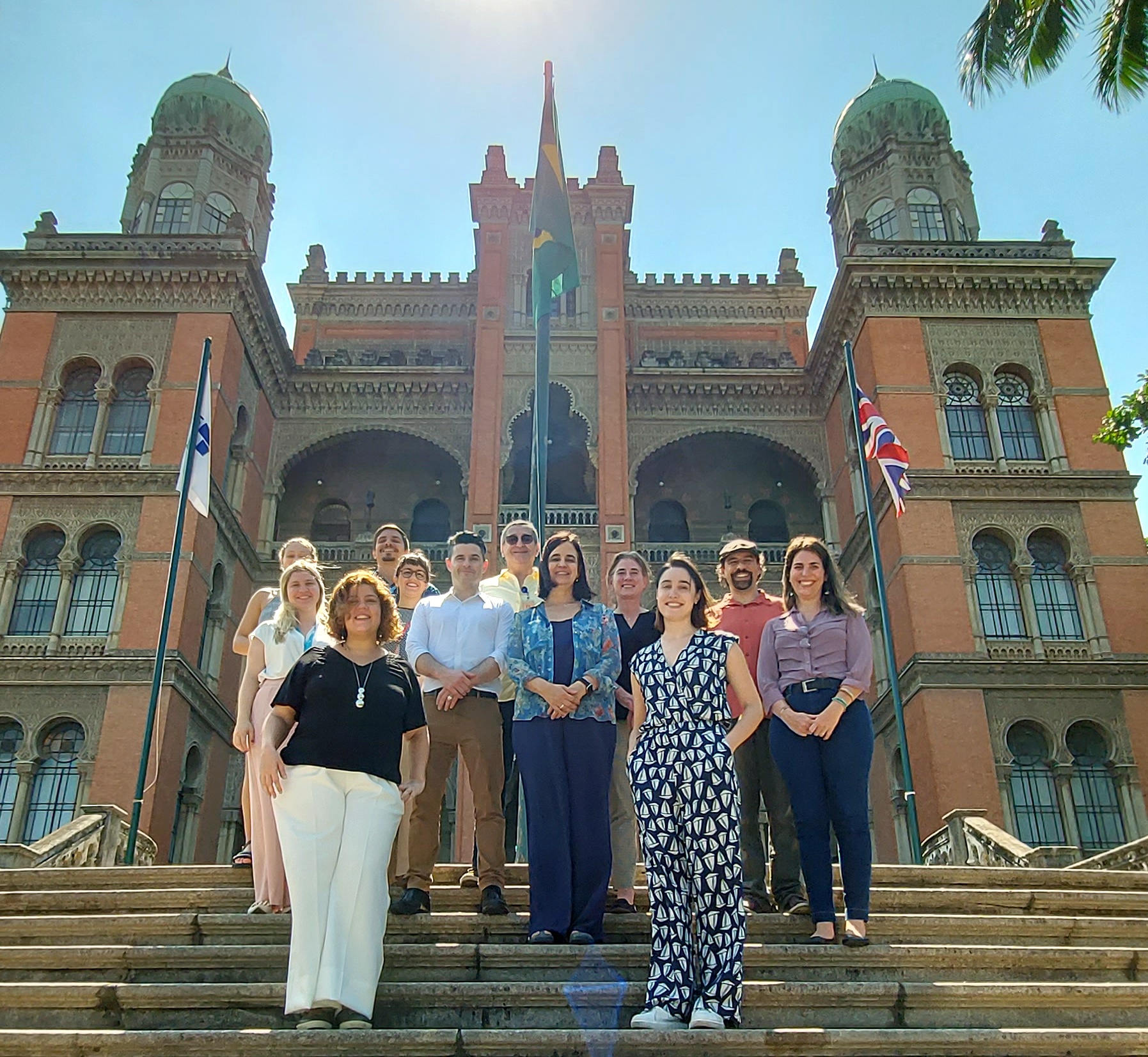Fiocruz welcomes partners from The Global Health Network
A delegation from the United Kingdom was at Fiocruz on February 5th for a meeting about The Global Health Network Latin America and the Caribbean (TGHN LAC). The consortium is supported by the Wellcome Trust and the following partners from Latin American and Caribbean countries: the Oswaldo Cruz Foundation in Brazil, the Instituto de Efectividad Clínica y Sanitaria (IECS) in Argentina, the Instituto de Enfermedades Infecciosas y Parasitologia Antonio Vidal de Honduras, the Universidad Peruana Cayetano Heredia (UPCH) from Peru, the Fundación Etikos from the Dominican Republic, the Universidad del Valle from Colombia (UdV), in addition to The Global Health Network (TGHN), linked to the University of Oxford.

The Head of The Global Health Network, Trudie Lang, and TGHN Senior Manager Operations, Liam Boggs, met with Fiocruz's Vice President of Education, Information and Communication, Cristiani Machado, Information and Communication Coordinator, Vanessa Jorge, the coordinator of the scientific computing program (PROCC), Ernesto Caffarena, the PROCC mathematical modelling researcher, Marcelo Gomes the international accountability assistant for the Fiocruz Support Foundation (Fiotec), Sara Junker, the accountability analyst Gates, André Aguiar and the international execution project analyst, Semiramis Alves, as well as other members of the project team. This was the first of a series of meetings in 2024 for Trudie and Liam with partners from The Global Health Network Latin America and the Caribbean.
Visit to Vacina Maré
In the morning, the delegation learnt about the work of Pathfinder Vacina Maré during a meeting with the team from Vacina Maré and Redes da Maré. Next, the group visited spaces within Maré that are part of the Redes da Maré, such as the Health Building, Normal Space - Reference Space on Drugs in Maré and the Maré Technological Innovation Network Space (RITMA), where year-round training workshops for cell phone/smartphone repair.
For Trudie Lang, initiatives such as Vacina Maré must be disseminated throughout the world. “We should take advantage, for example, of Romário's (member of the Redes da Maré team) experience, who today works with data science using REDCap, and share an example of his daily work so that other young people (like him) can learn and be motivated to study research, which should not be restricted to academics only” commented the director of TGHN.
Planning for The Global Health Network LAC
During the afternoon, the group met and talked about the results of the project "A New Ecosystem for Health Research and Data Science”, supported by the Bill & Melinda Gates Foundation, recently completed by the VPEIC team. Vanessa Jorge and the data coordinator at TGHN Fiocruz, Larissa Pruner, showed the main deliveries and products developed throughout 2023, including partnerships with project teams to carry out the Pathfinders Vacina Maré and Nascer no Brasil II.
Next, Liam Boggs opened the debate with analysts from the Fiotec about the accountability of the Gates and Wellcome Projects and their execution.
At the same event, Trudie presented the governance of TGHN and reinforced the importance of the leading role of all member institutions of the TGHN LAC consortium. As next steps, the director highlighted the importance of the Latin America Hub growing. “The TGHN LAC must have resources from many countries and begin to exchange intensively with the TGHN areas that already exist in Asia and Africa” explained Lang.
PROCC Strategy for Latin America and the Caribbean at TGHN
Marcelo Gomes presented some PROCC initiatives to partners. He showed that PROCC researchers work as professors in different postgraduate programs and highlighted some initiatives such as InfoDengue, InfoGripe, molecular modelling and CabGen, that can enrich exchanges between researchers from other parts of Latin America and the Caribbean. “This is an opportunity to exchange with people from other parts of Latin America and the Caribbean and show what we already do, but also learn from our partners” commented Marcelo.
1000 Challenge
At the end of the meeting, Trudie showed the 1000 Challenge. “The 1000 Challenge is intended to make health research less hierarchical and more accessible to groups of nurses, midwives, health agents and other members, on any subject they find important”, highlighted the director, who cited examples such as training nurses in Kenya and Nepal.
